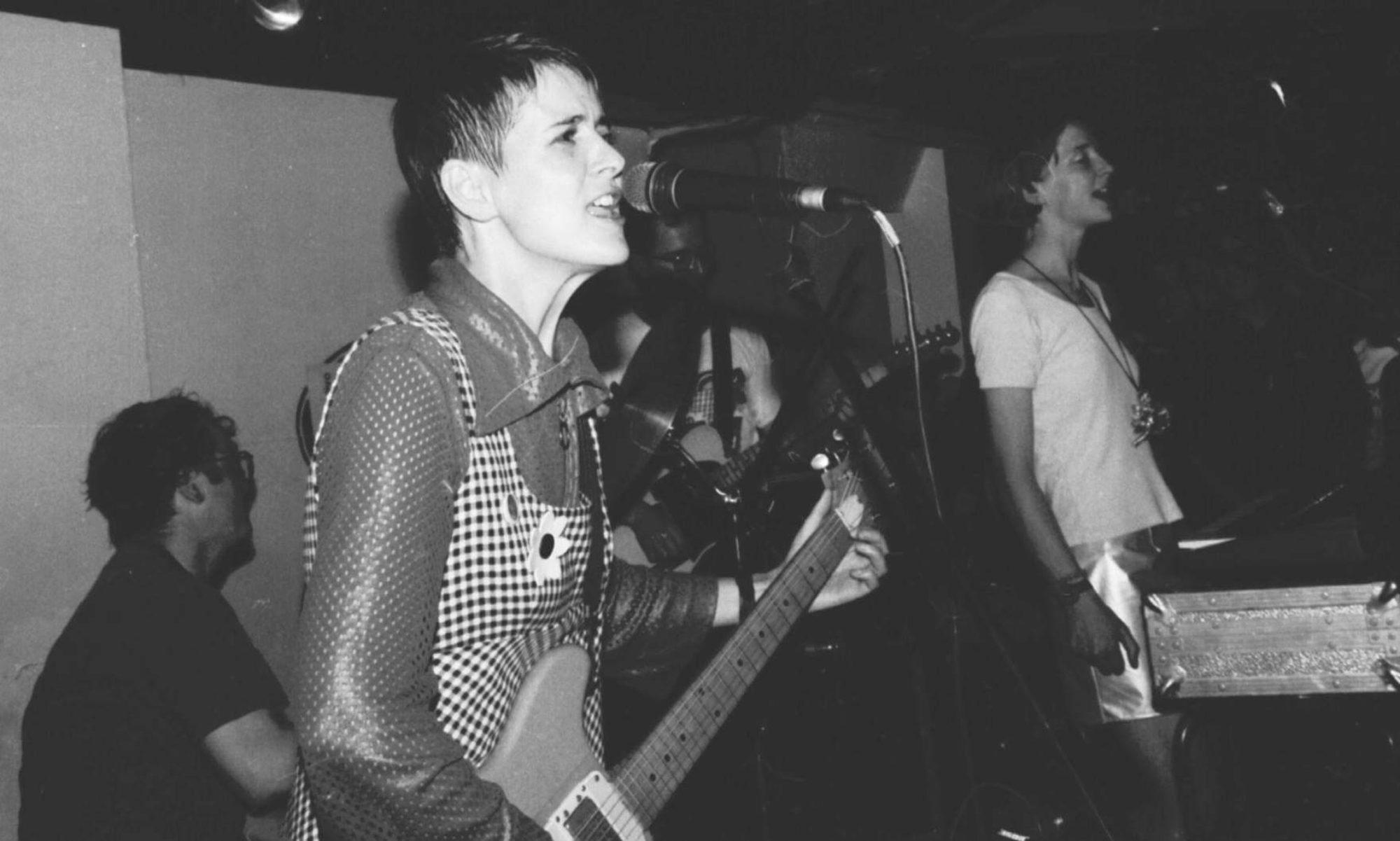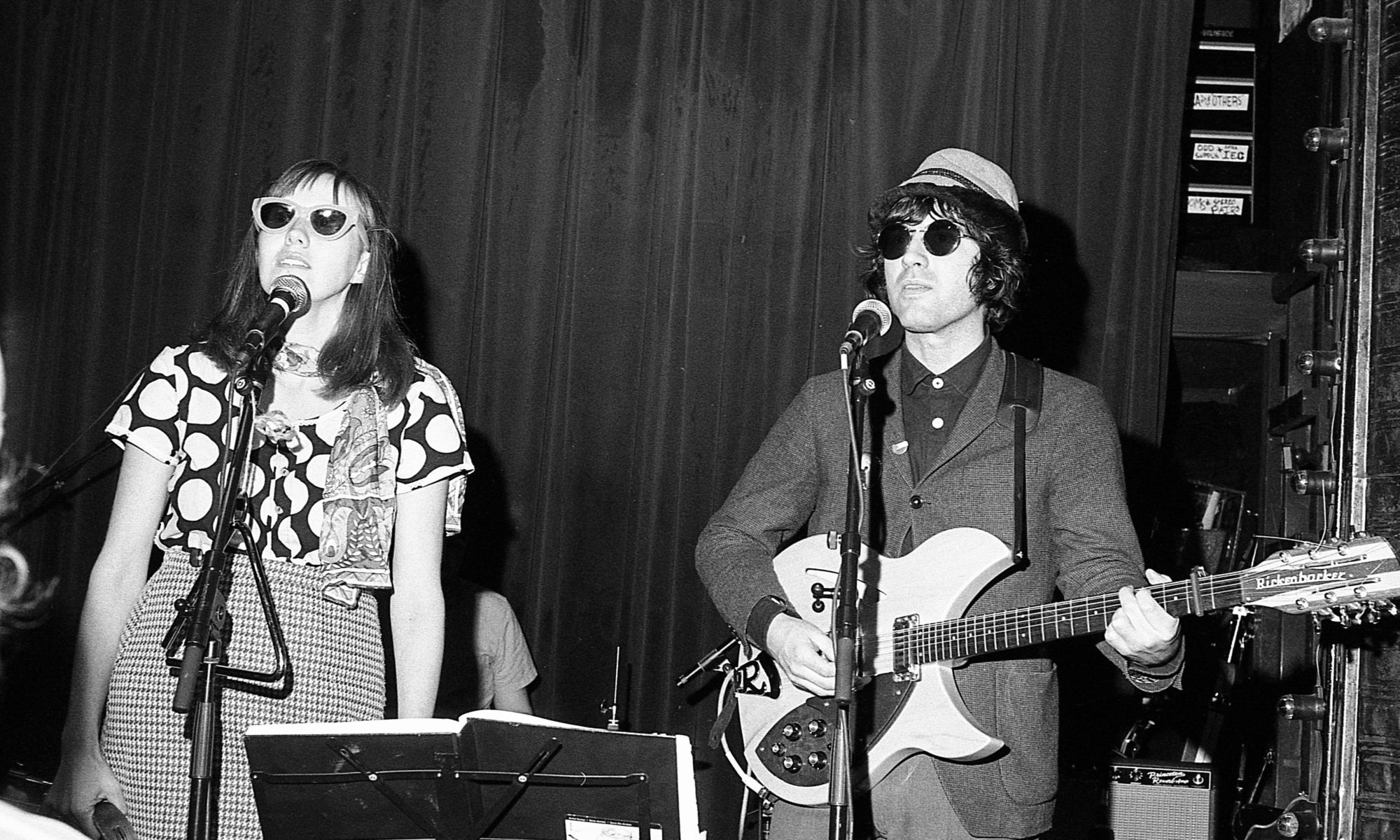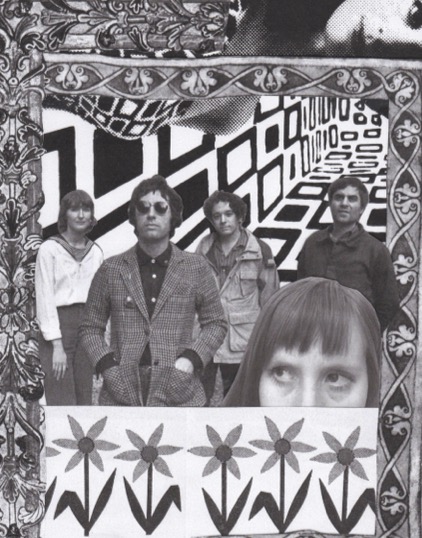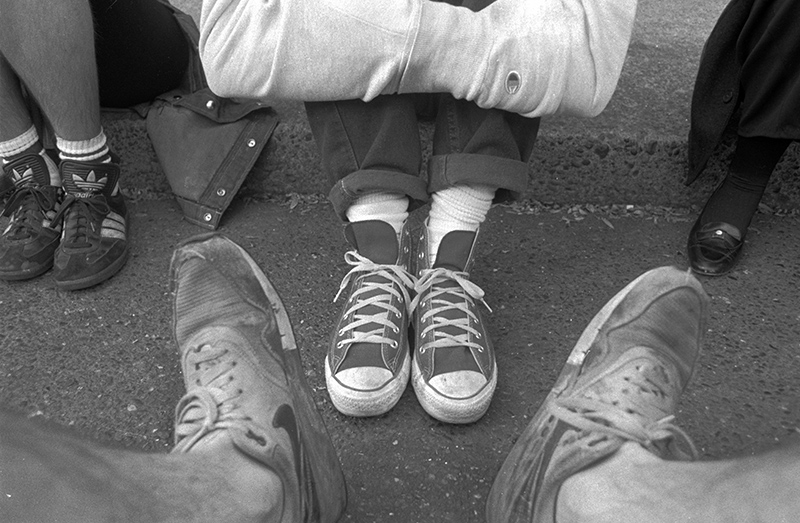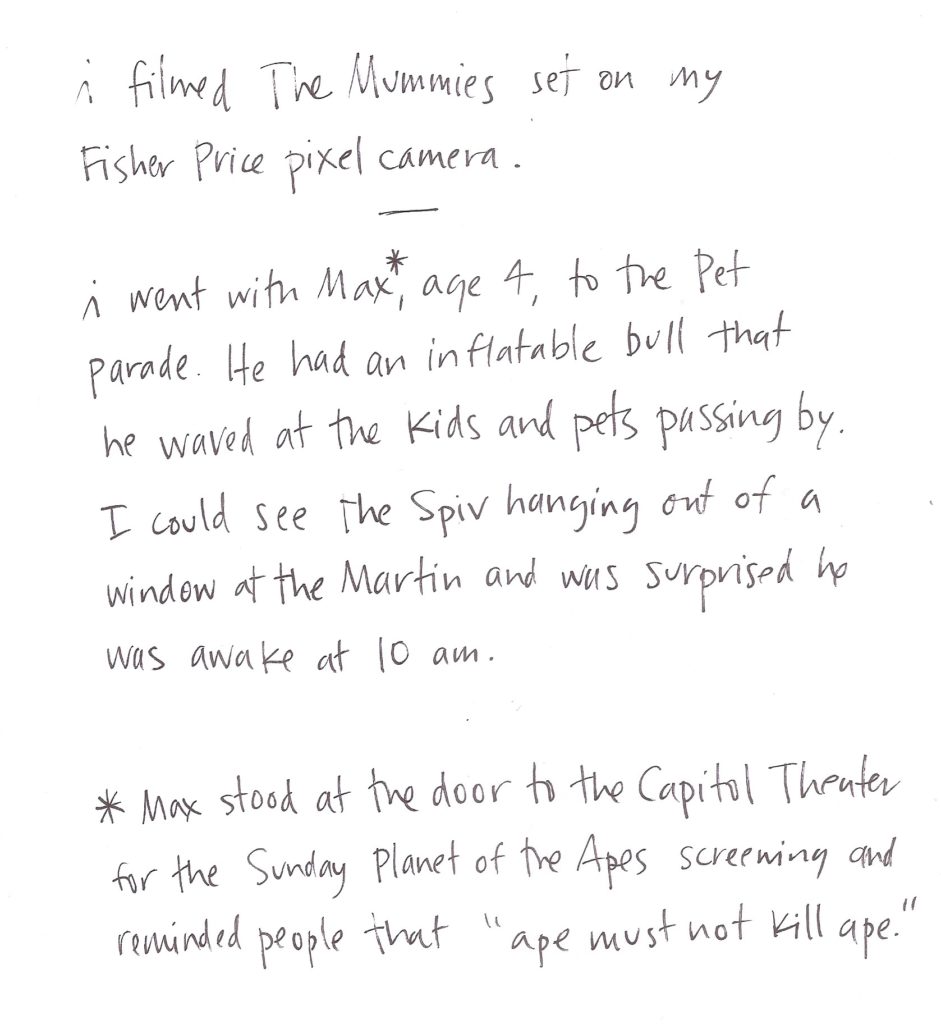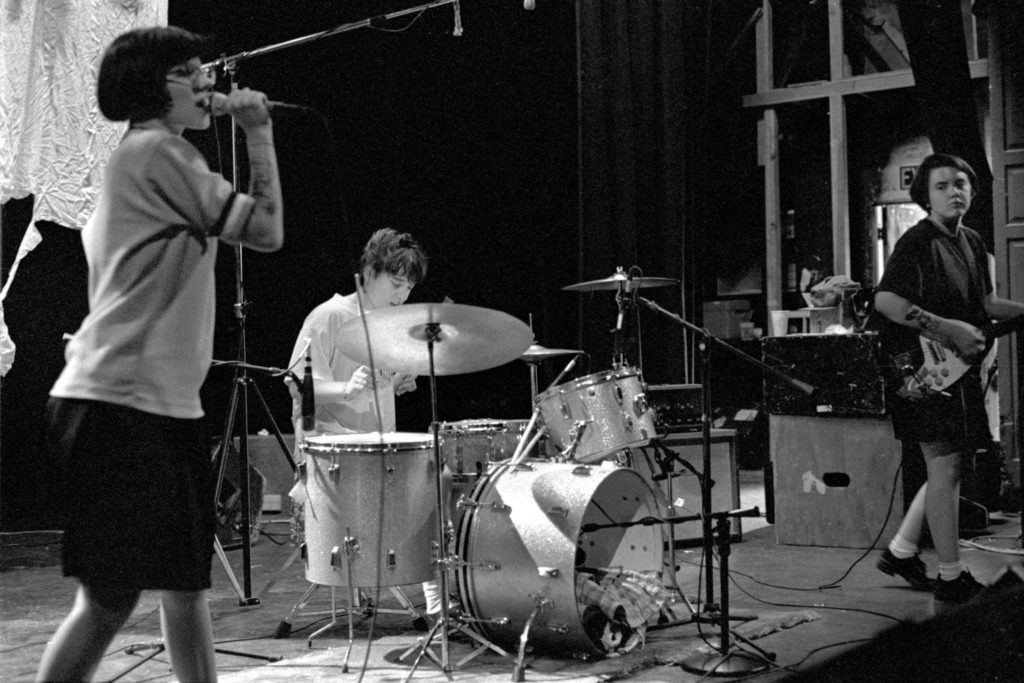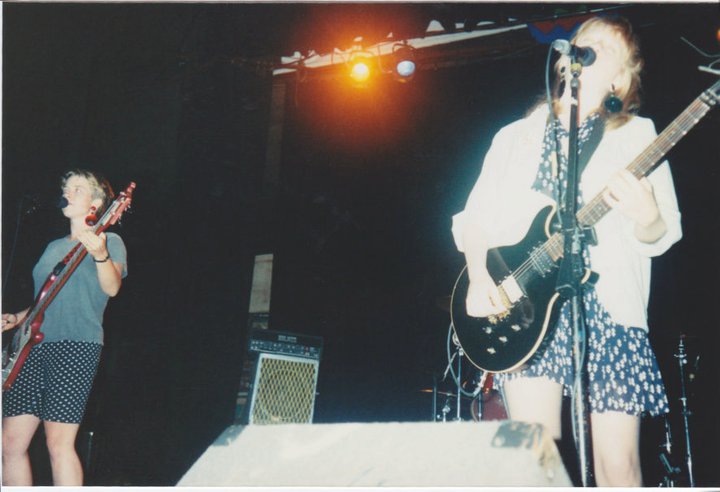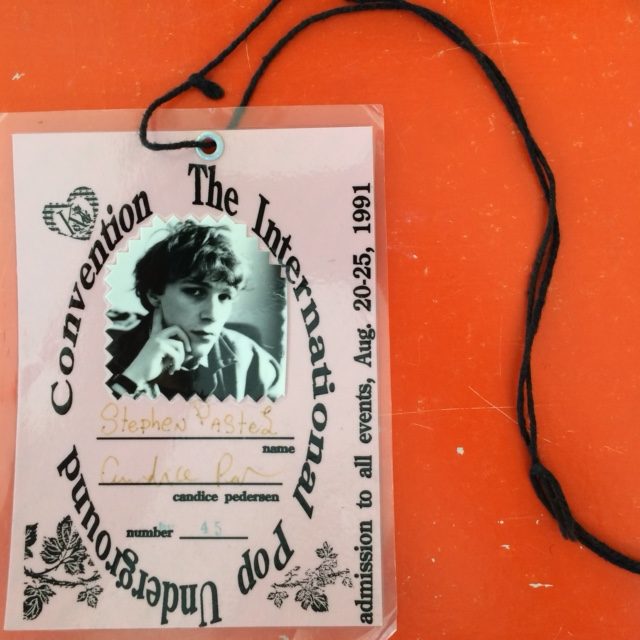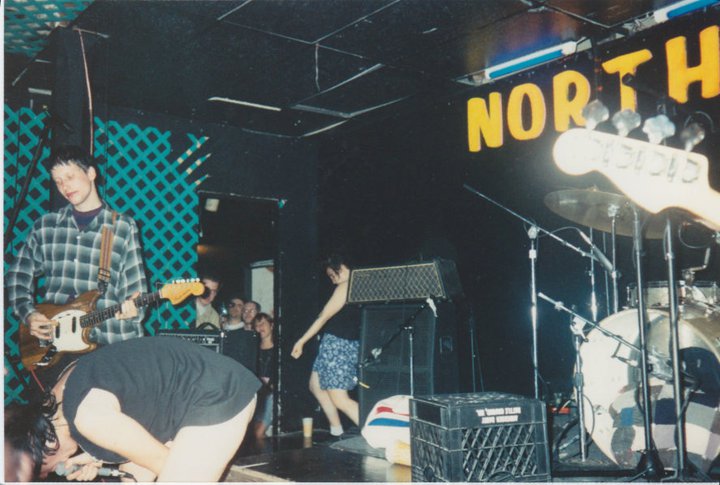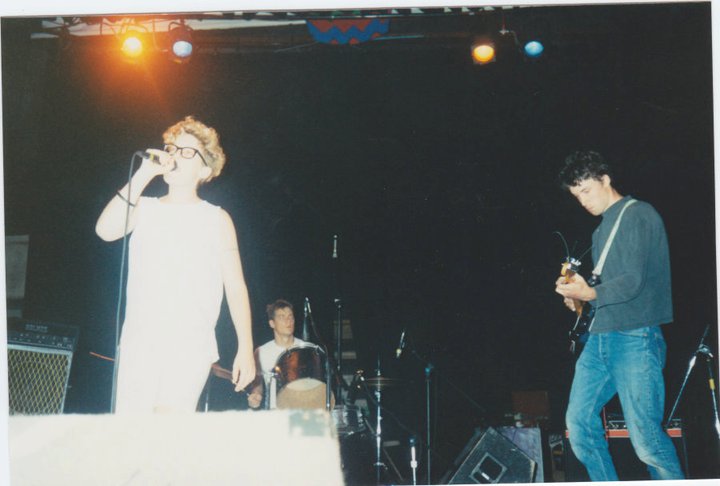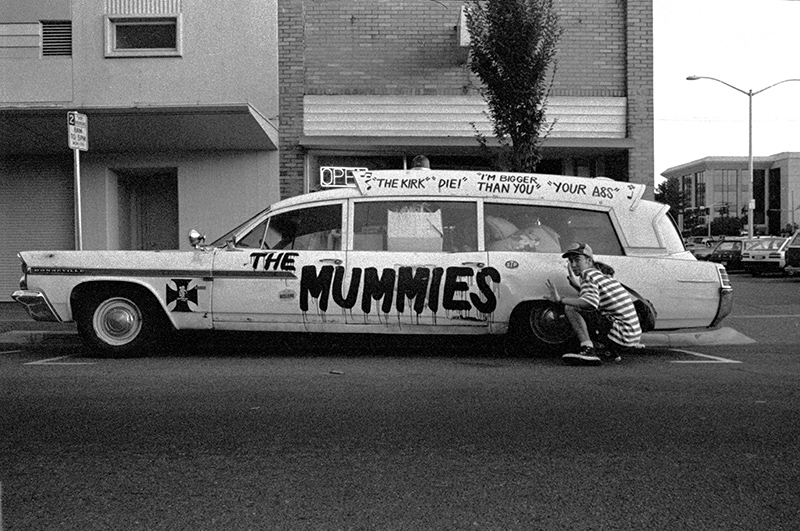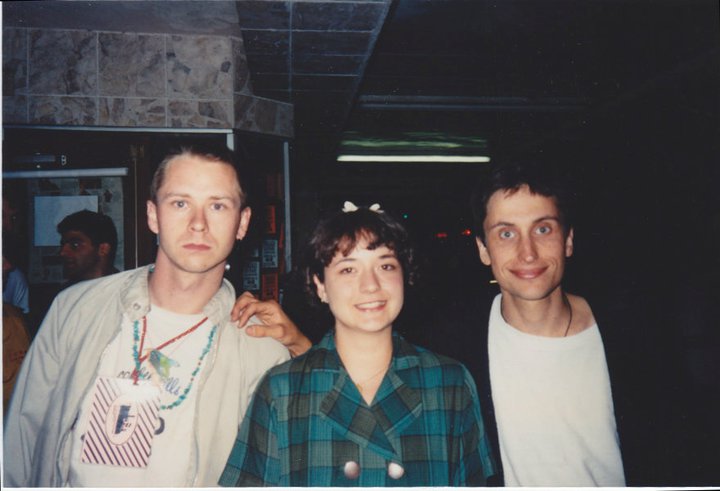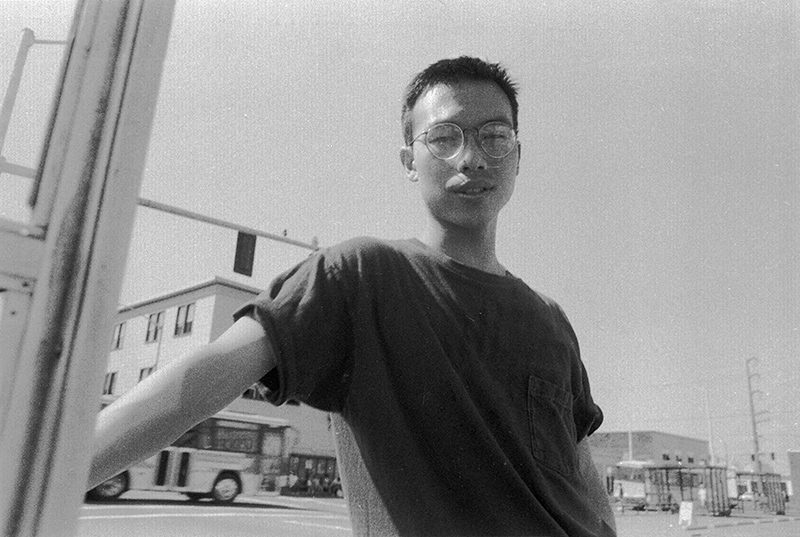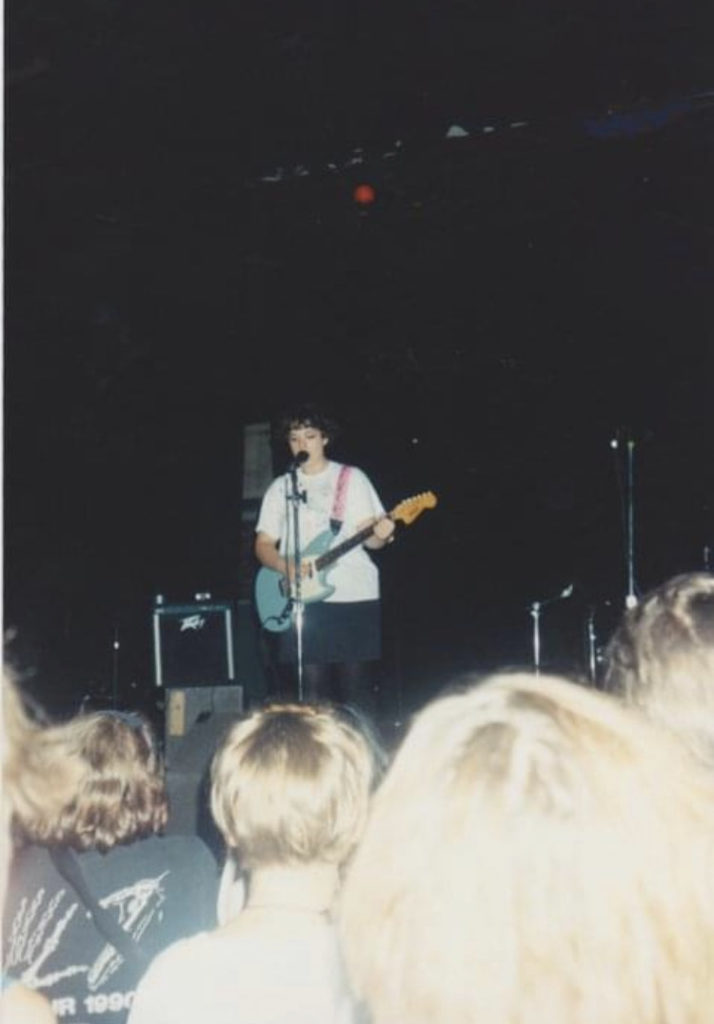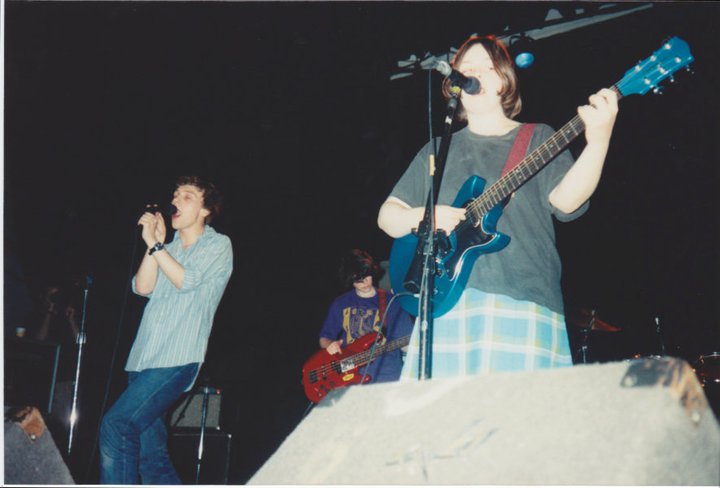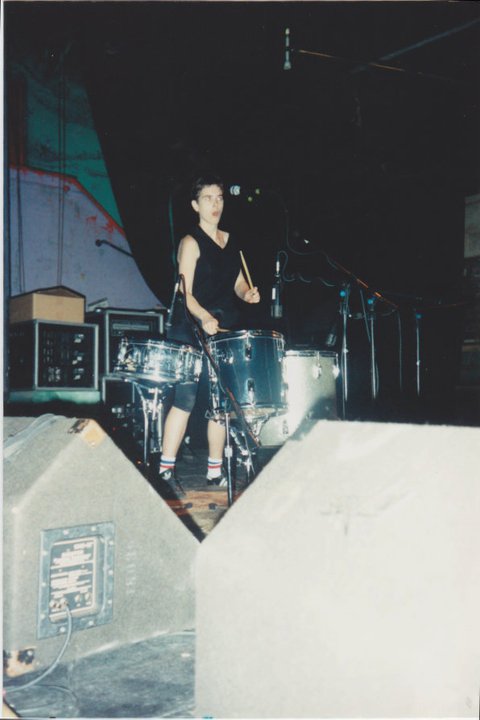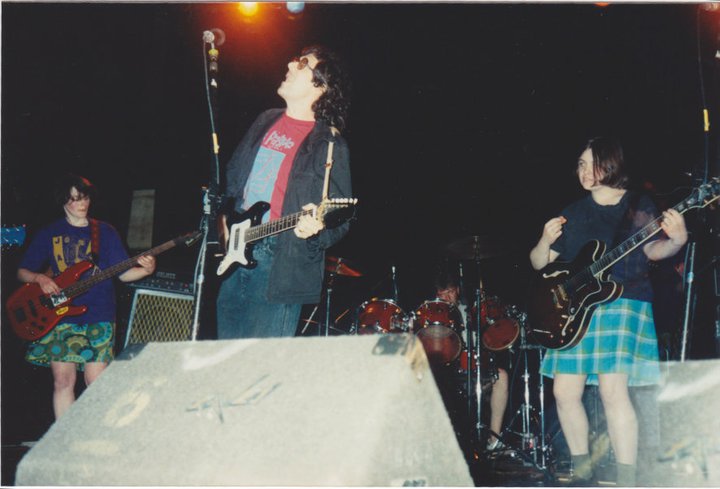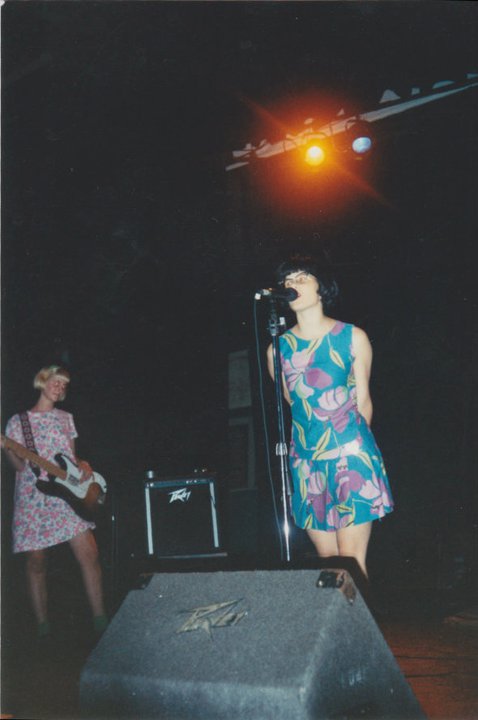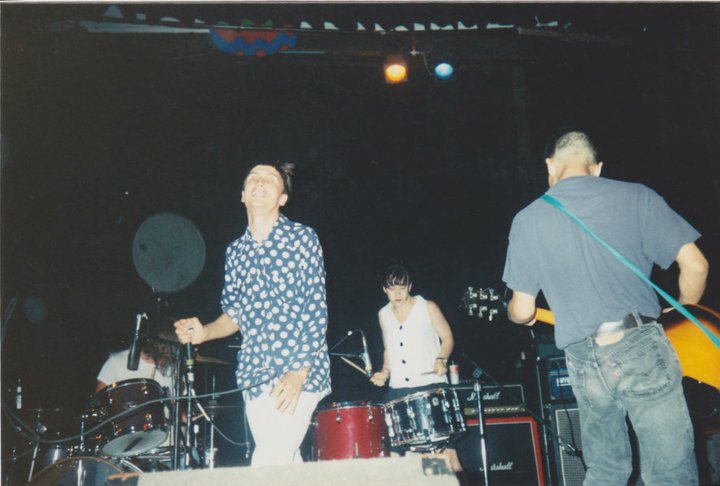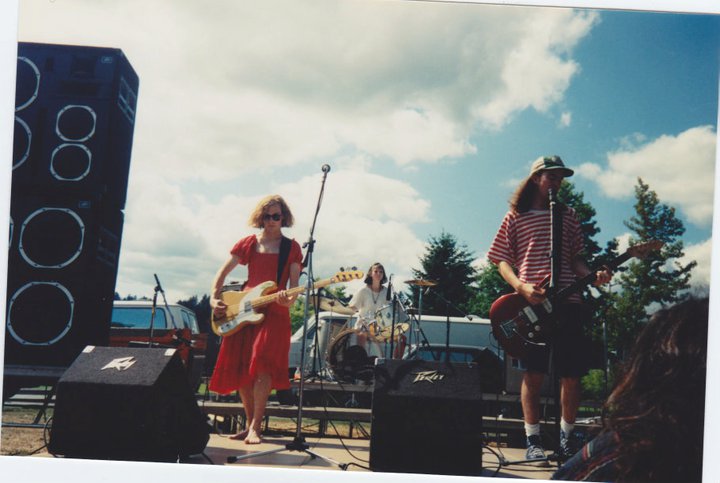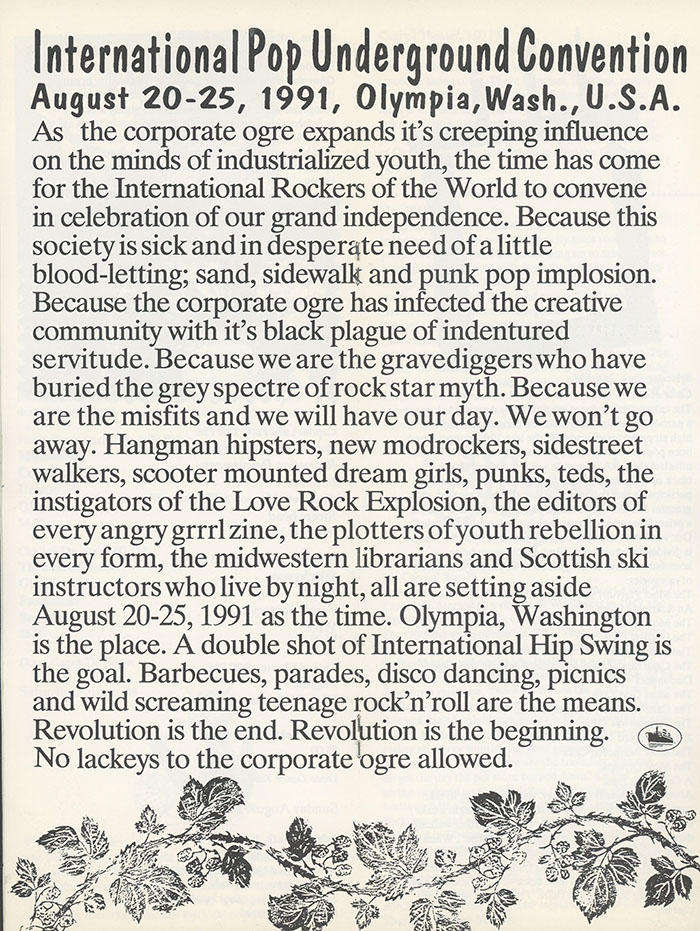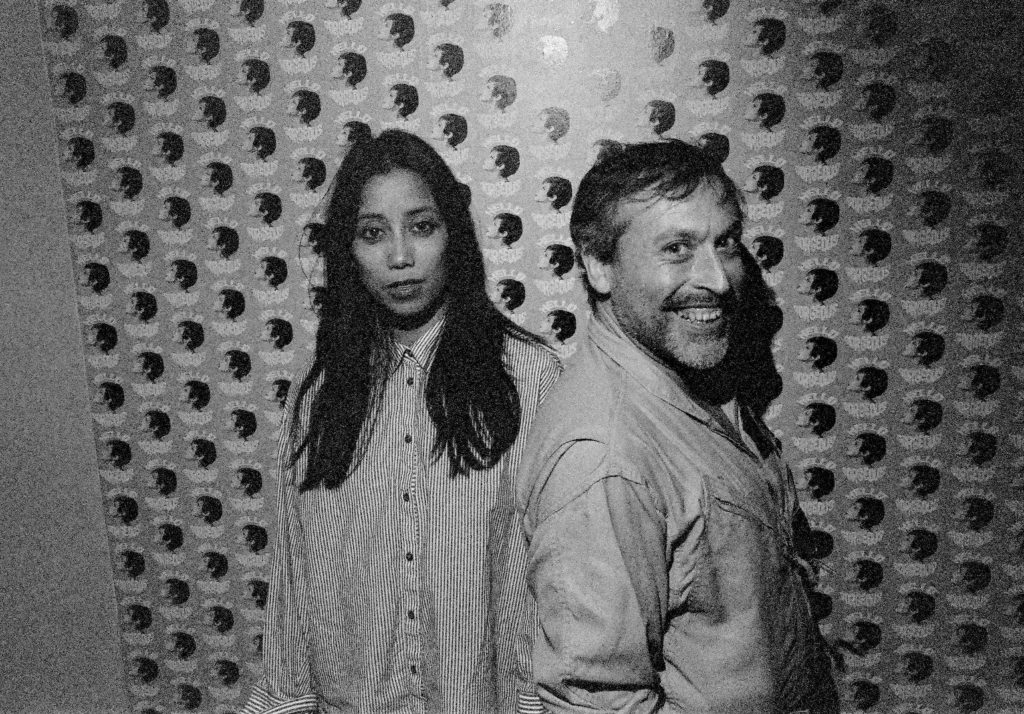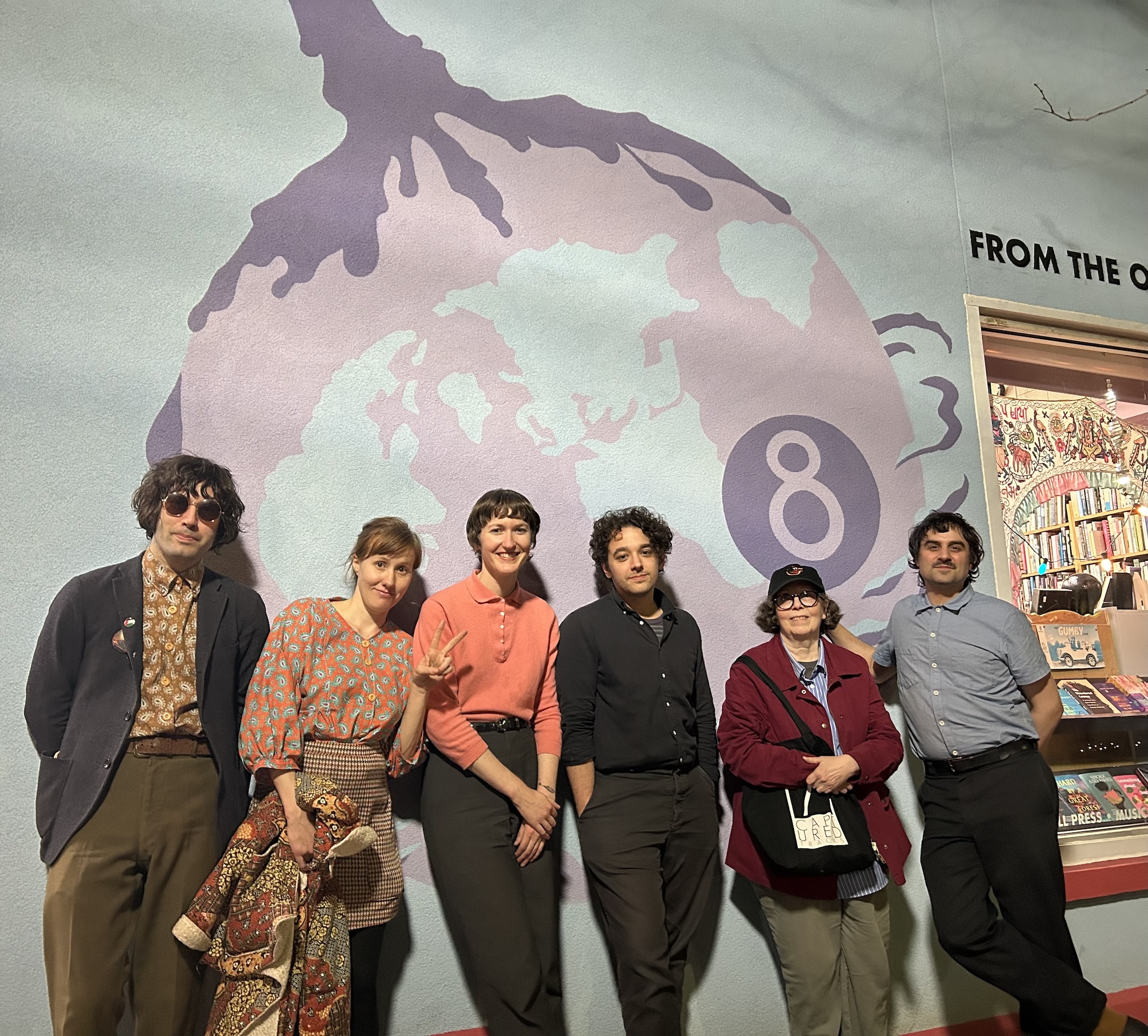
This Sporting Life: An Interview with The Smashing Times by Linda Smith
It’s 2024 and all over the world people are once again picking up their guitars, keyboards, and drumsticks in pursuit of the heavenly pop hit for those who still want it. One such group of people is called The Smashing Times. Based in Baltimore, MD, The Smashing Times have released two albums (on Meritorio and K Records) and several singles of infectious Rickenbacker driven songs that evoke the sights and sounds of swinging ’60s London. They also tour as time permits. Thee Jasmine Monk writes the songs, sings, and plays 12 string; Alex sings and plays recorder; Blake sings and plays guitar; Britta sings and plays bass; Paul plays drums. Recently, I had the opportunity to accompany the band on a short east coast tour and had a smashing time (especially in Philadelphia). Below, Jaz and Alex answer some of my burning questions. —Linda Smith (whose Nothing Else Matters and I So Liked Spring were reissued/made available on vinyl/streaming platforms in March)
Linda Smith: English Breakfast or Earl Grey? (Or something else?)
JAZ: The’ Au Jasmine! And I like Rooibos, it tastes to me how pipe tobacco smells. But nothing pretentious, just stuff off the supermarket shelf. English Breakfast, Earl Grey, I like those too. Teas all seem good to me.
ALEX: Coffee and biscuits in the morning and then herbal tea all day long!
Do your parents support your musical activities?
JAZ: They did but never really financially. Though I had some piano lessons when I was a young sprout.
ALEX: My parents don’t believe I’m in a band. They want photo proof.
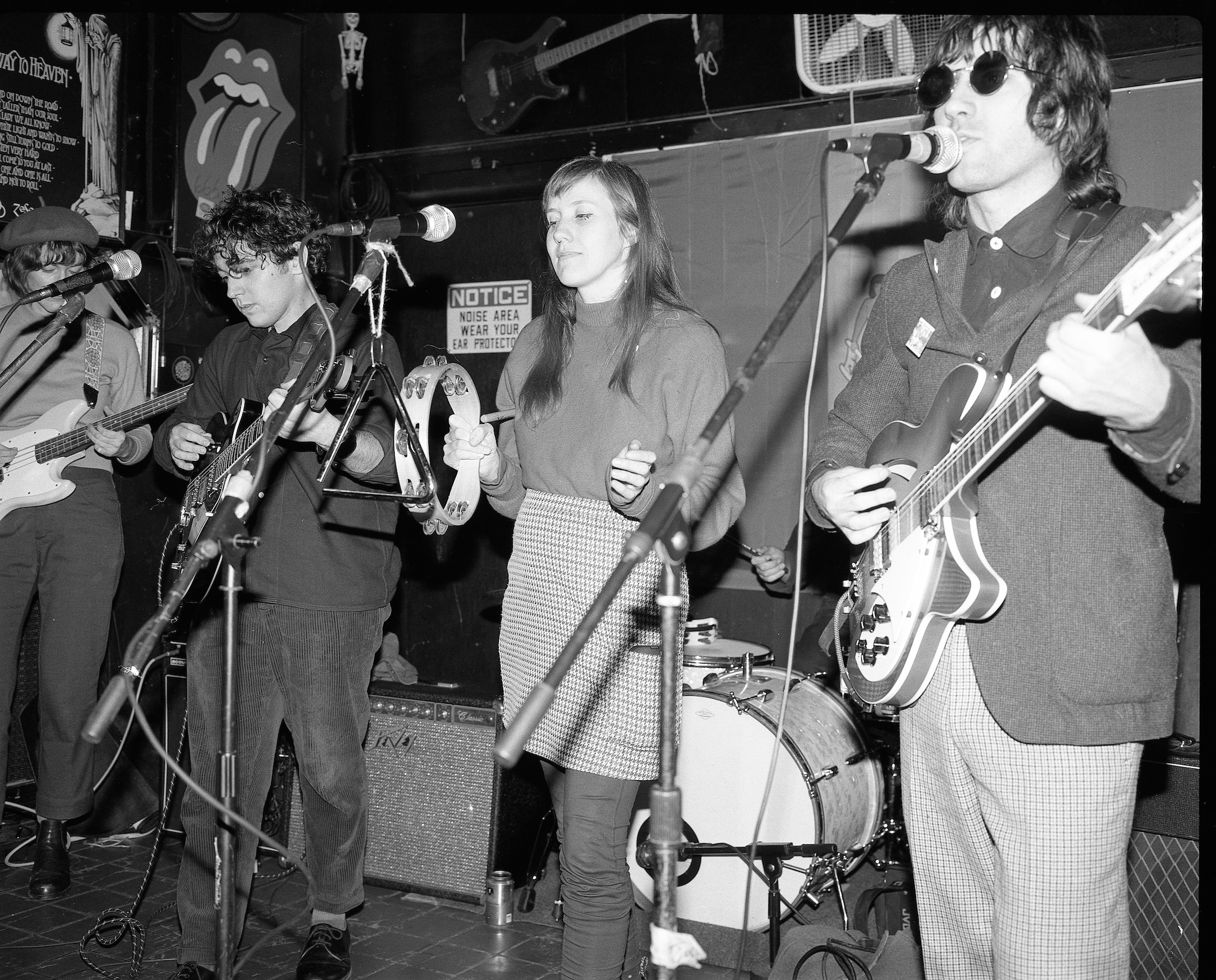
Are The Smashing Times a “jangle pop” band? What do you think of that category?
JAZ: We are a freakbeat band. I like some of the jangly Cleaners stuff. I’m not sure what bands fall into that category. I like the Beatles and I also like The Creation. We’ve gotten references to the Byrds—I like them but they aren’t a band that I would consider an influence. That guitar player rips but he’s a little bit annoying. Gene Clark is cool. So handsome … have you heard the band Now? Their singer Young William gives me a bit of a Gene Clark vibe. Nice fellow, bought us drinks last time we were down there. I recommend that readers dig up a copy of And Blue Space is Burning Noon.
ALEX: Jangle away! I love the category.
I’m interested in The Smashing Times’ home recording process. Do you all play together live or do you record each track separately? Where do you record? Would you consider going into a so-called recording studio?
JAZ: I have a sort of indeterminacy that I apply to all factors of my life. I try not to apply intent to anything. Thus what many people probably hear as lo-fi is really just a result of my gross incompetence and lack of interest in developing technical skill. I have some SM57s that I plug into whatever computer is around and use free software to record. It’s mostly plug and play. I don’t document anything and I try to ignore any advice I’m given. Paul, Alex and I each played drums on the record we just wrapped up. Usually I play most of the other instruments but everyone in the band is there somewhere. I’d like to include everyone, rehearse and go into a studio but we all have jobs and there simply isn’t time. If that took a week then that is a week that we could not tour that year. I am very grateful and very fortunate that such fine people have chosen to come along on the journey but I’m not sure why? What is their motivation, Linda? It certainly can’t be financial. We get along so well, I’m just waiting for the other shoe to drop. I’ll miss them terribly when they eventually do get fed up with me.
ALEX: We record in our basement that we’ve painted in psychedelic colors and has a mural like Granny Takes a Trip mural…pink, blue, yellow, and then some. We have a lava lamp that’s been used so much it turned into a weird wax-like goo and doesn’t work anymore. There’s plastic ivy and string lights hung up on the ceiling pipes. When Jaz is in serious recording mode, we can’t use the sink or flush the toilet anywhere in the house because the water in the pipes will pick up on the track.
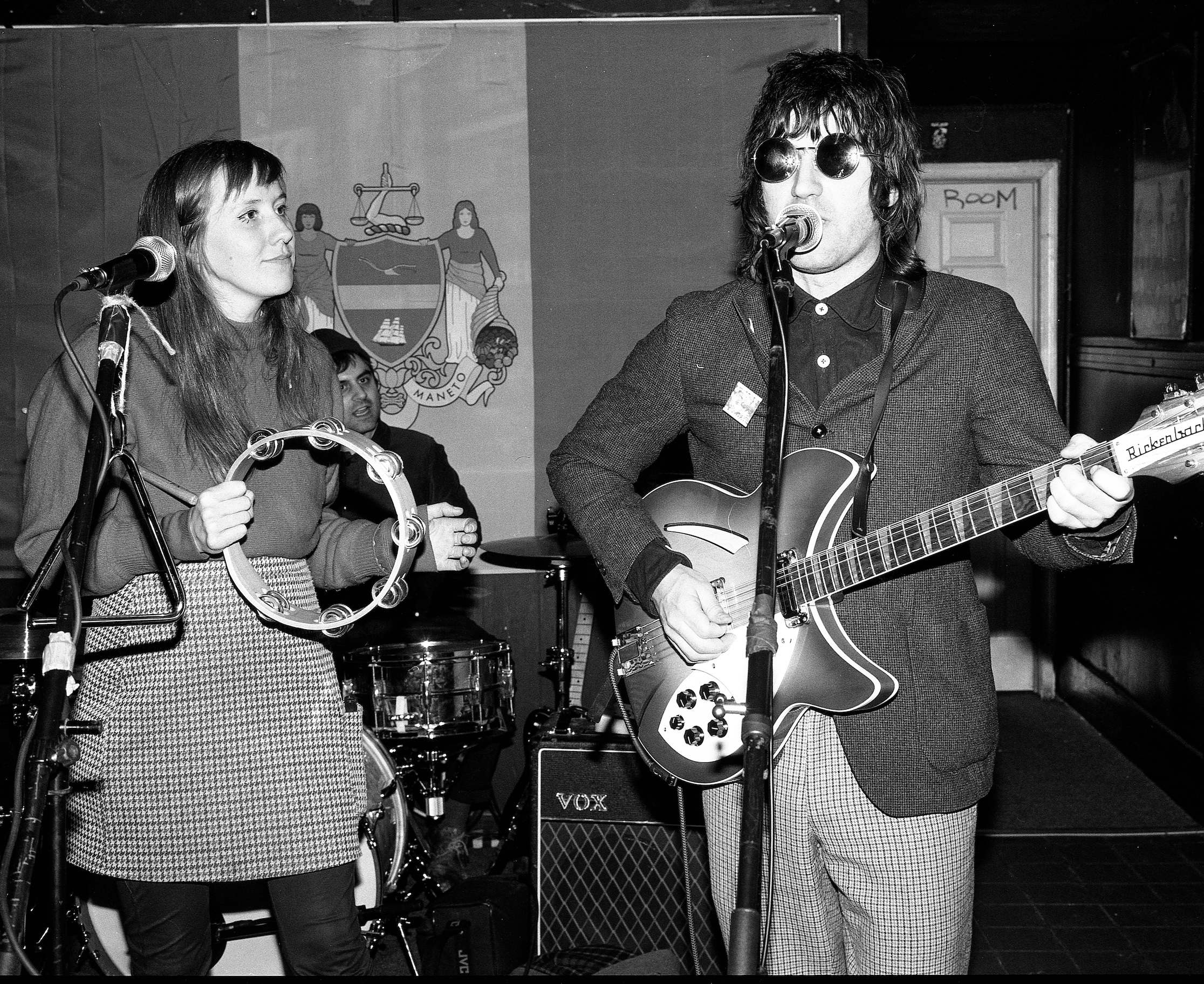
Where would you live if you could live anywhere in the world? Do you think that you have a spiritual home where you would feel more at home than where you are?
JAZ: Japan! I want to be buried there, anywhere, even outside a 7-11.
ALEX: Fantasize about living in a cabin in the woods.
What and/or who inspires your songs?
JAZ: Squire, Merton Parkas, Mark E Smith, Martin Newell, The Beatles, The Zombies, Bert Jansch and Pentangle. They will never read this so its ok, I usually don’t tote contemporaries, but the Children Maybe Later album is splendid and definitely inspired me on the record we just finished.
ALEX: Ditto and also Elton John.
When did you write your first song and what was it about?
JAZ: When I was a young they, I can recall composing a blistering trumpet track ala Louis Armstrong while I was in the shower. My sister recorded me singing and the family loved to ridicule me by playing it in social situations around strangers. I’ll admit, it set me back.
When did you buy your first instrument? What was it?
JAZ: I bought a bass! It was a Rickenbacker copy and the brand was Lotus.
ALEX: My first instrument was a keyboard my parents bought in 1999 so I could take piano lessons and practice with. I moved away and left it and Jaz got it from my brother, then we moved in together and I still have that keyboard. I think it’s in the studio. I can’t get rid of it!
Did you always want to be in a band? Who is your main musical inspiration?
JAZ: Always. My current inspiration comes mostly from Colin Blunstone and Rod Argent. But growing up it was at various times Paul, John, George, Cher and Bronski Beat.
ALEX: Girls in bands were always so cool to me! Of course I wanted to be in a band but this came about more organically then, like, joining a band for the sake of that. Jaz and I got a set of drums and set them up in our old apartment and I got started learning! I did not see myself being a singer, but it’s really fun.
Do you prefer recording to playing live? What do you enjoy most about each?
JAZ: They both seem to cause existential dread for me and yet I keep doing it.
ALEX: Both have their moments. Recording is so fun because I can be a goof and we can scat and put in so many doo-doo-doo’s and la-la-la’s and I’m laughing the whole time. Playing live makes me too nervous to enjoy it the same.
What is your favorite British film?
JAZ: Bridget Jones Diary! Err um I mean… I keep watching Alfie over and over. For a while it was Saturday Night and Sunday Morning then Billy Liar…I think If I had to identify with a character, it would be Billy Liar.
ALEX: Bridget Jones 1-3.
Did you like school or did you hate it?
JAZ: Hated it. All the way through grad school. The more I’ve learned about what is really going on the more bitter I’ve become. I had such a sense of wonder when I was young!
ALEX: I have a love/hate relationship with school. I did too much of it! But I liked the punishment. The best part is when you finally get a winter break or summer break, or the feeling after taking a huge stressful test, or finally being done with your least favorite class! Jaz and I used to take separate evening classes, then meet up afterwards and stop by our fave bodega to pick up 2 packs of heat nuts and 2 big cheap beers for the walk home to Chinatown.
What do you like about Baltimore? Were you born here? If not, where?
JAZ: I like to see old buildings that are covered in Ivy and left to deteriorate. I also like the culture here, you can be a proper dandy and people will celebrate you. I love to get hollered at from a car window for my extravagant dressings. I’m from Seattle. It used to be cool but it’s basically a company town for the online delivery service Amazon now. There’s also nothing old there and no sun. Good riddance!
ALEX: Baltimore has so much sunshine. I need the vitamin D. Also from Seattle where it rains 9 months of every year.
Zombies or Left Banke? 😄
JAZ: Haha ZOMBIES! I have been listening to the second Left Banke record lately and I am falling in love with it. This stems from our conversation, I assume, about how my next goal is to write a baroque pop album? 😉 It’s a good goal, you should do it too!
What was the best band of the ’90s? (If you have a favorite.)
JAZ: The ’90s were horrid! Probably the Brian Jonestown Massacre. Did the Third Rail Power Trip come out in the ’90s? I like that.
ALEX: BJM!
Do you have a favorite chord progression?
JAZ: C maj, A minor, D minor, G maj and anything with a 7th chord.
(The following 3 questions refer to songs on The Smashing Times’ latest album, THIS SPORTING LIFE.)
Who is Wes?
JAZ: Weston! An old friend, he’s been an expat for a long time and some of the social awakening that has happened here has passed him by.
ALEX: Once in Tokyo we met him for pizza and he flirted with my friend the whole time. It was charming but strange. Pizza was so delicious. I think it might have had bonito flakes on top?
Who is Petey?
JAZ: That’s Paul’s dog. We needed a name for the instrumental and after Paul and I finished tracking drums he was on the phone talking to someone about something and he said “poor Petey” so I named the file that, and it stuck. Incidental but not terribly nostalgic for me.
Who is Rowan Morrison?
JAZ: I think you mean WHERE is Rowan Morrison? it’s a character from The Wicker Man. Actually I think that might be my favorite British film. Alex and I are huge Hammer and folk horror fans.
I love the use of the recorder in the songs. Where or who did that idea come from?
JAZ: I saw Britta playing one in an online video and I had to have one. Alex and I have been discussing getting some flutes for a while but this was much more interesting and accessible I think. Alex found them at a junk shop. We accumulate things like that and then while recording they get involved spontaneously. I have a djembe drum that a neighbor left on the porch when they moved. It’s all over the records.
ALEX: My ultimate goal is to learn to play the flute, but we don’t have one yet. I’m looking for a nicely priced used one. In the meantime, using the recorder is really fun and gives a haunting melody on a few tracks.
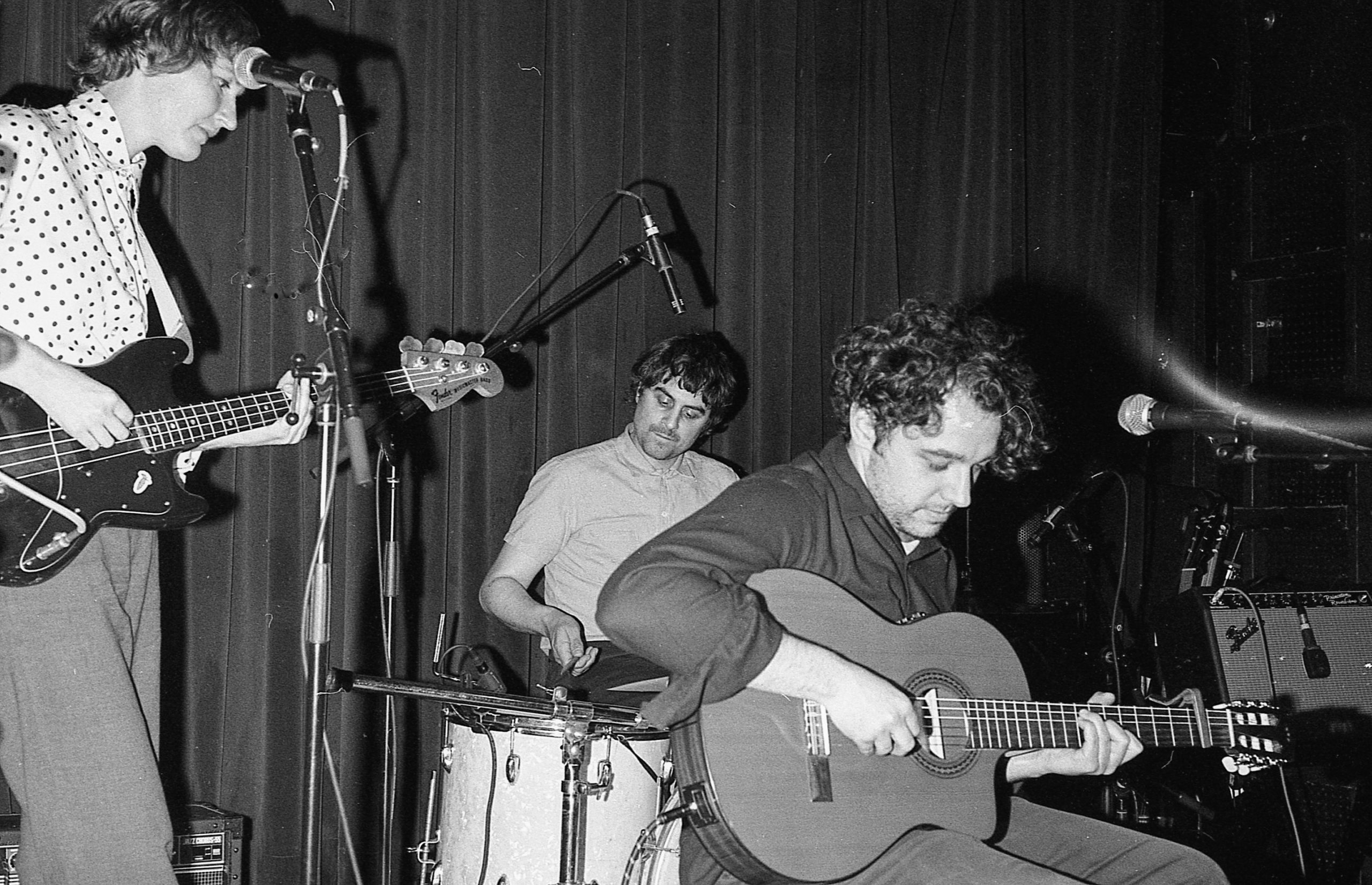
Do you think music is the greatest art form?
JAZ: I quite like books. Music is pretty hit or miss. I used to read under my desk in school. The first book I read was The Book of Three by Lloyd Alexander but in the last fifteen years I’ve been devoted to Japanese literature. I like Shiga Naoya, Masuji Ibuse, Kenzaburo Oe, Yu Miri, Yoko Ogawa. lots of writers. I love that Japanese literature is not as tied to predictable conventions. There’s no Chekhov’s Gun assumption and it doesn’t necessarily have to be allegorical or resolve. I have become a devoted acolyte of the poet Santoka Taneda in the last couple of years. I also like that I can enjoy it as an outsider—I don’t consider myself a writer so I’m not trying to get anything out of it from a research standpoint. I can take it at face value as long as it does not have distinguishable patterns or tropes, if it does, it flies across the room and back in the Library sack!
ALEX: Like apples and oranges. I find enjoyment in scissors and paper and glue and crayons, too. I like to paint and sew clothes for me and Jaz and friends. Recently we were coloring the cassette covers with colored pencil and that was super satisfying. To me, that sort of art is the best, when it feels good, and it’s not necessarily planned out, and it just flows, like glorified doodling.
How did everyone in the band meet each other?
JAZ: I met Alex through her brother who I used to make avant-garde organ music with – he has since drifted into a life of Northface Jackets, Subaru cars and respectable kayaking. Paul and Blake came to see The Smashing Times in an earlier incarnation and Britta reached out to us at some point. I’m quite glad. Britta has a band named Children Maybe Later that is quite good. I think Paul and Blake have a project going but it does not have a name yet. I’ve heard some of it, I think people are going to like it. I’m jealous already!
ALEX: First time I met Paul and Blake was at a pizza place. Britta might be a character in The Wicker Man, she’s a legend.
What jobs do you have? How flexible are they in allowing time for music?
JAZ: I don’t like to go to work, and I don’t like my job. To me it’s a place where my surplus labor is taken and used for the gains of others. It takes me away from my partner and children and it makes me too tired to focus on worthwhile endeavors. But on the other hand—maybe it’s the catalyst for all this escapism?
I worked at several movie theaters when I was younger. It was amazing working on the opening night of a movie. Once everyone sits down to Harry Potter 17 or whatever, all of a sudden you are alone in this giant space. I used to eat candy off the ground to save money. And I can recall turning cartwheels and playing badminton in the lobby. My dream job is to buy a Chevy Love, learn how to drive, get a license, then drive to Los Angeles and deliver Pizza. After that I would replace Bruce Campbell as the champion of B-movie horror.
ALEX: Music is the weekend job! It’s way better than the midweek job.
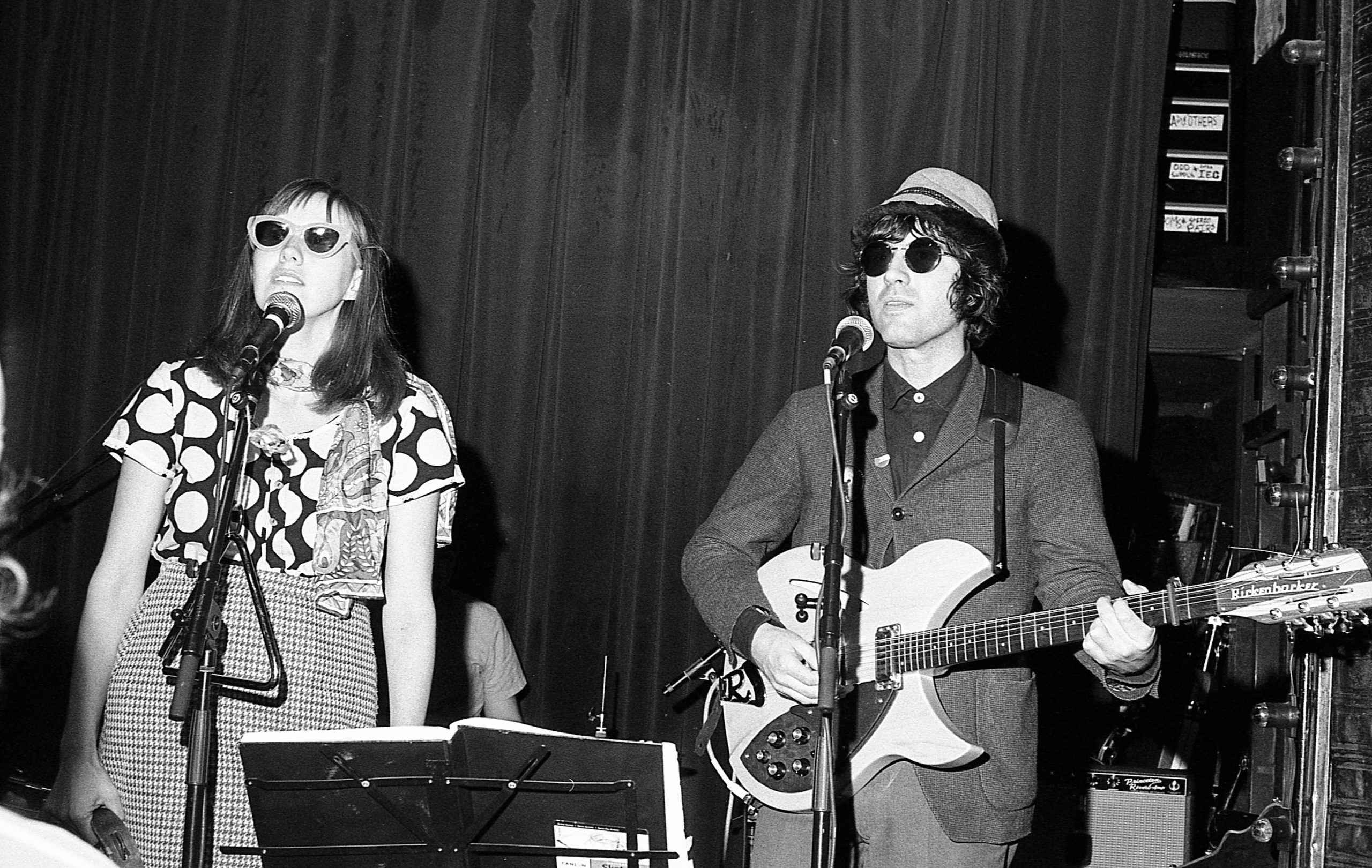
What has been your favorite venue to play so far?
JAZ: I like the small venues where nothing is mic’d. The shows we played on that tour together were great for this.
ALEX: I agree, I like the small venues best. We had a mythic show in Pamplona, Spain last year that was like a dance party all night long; also I can think of a certain Philly show that might go into the scrapbook, too.
What is your next recording project?
JAZ: I’d really like to make a baroque pop album. But specifically a baroque pop album that sounds like The Zombies and The Bee Gees’ 1st. I’ll probably be less prolific for a bit but I feel like I’d like to take some time to work on this one. For a while the goal has been to make things as slapdash as possible – the fear is always that if you spend too much time on it the painting will be overworked. The songs are for me and the records are for you. I try to remind myself of that and when I get upset about mixes and so on and so forth, I just shrug and say “well, I think it’s a disaster but maybe someone will find it endearing.”
Go see The Smashing Times:
May 9 Charleston Pour House Charleston, SC
May 10 Tuffy’s Music Box Sanford, FL
June 6 Thee Stork Club Oakland, CA
June 8 Permanent Records Roadhouse Los Angeles (LA), CA
June 9 GONZO! Carlsbad, CA
June 13 PhilaMOCA Philadelphia, PA
June 14 The Broadway Brooklyn, NY
Listen to their records
Listen to Linda Smith’s records
Read our interview with Linda Smith!
